Appeal to Ignorance
 Appeal to Ignorance is an argument that asserts that something is true because it hasn’t been proven false, or something is false because it hasn’t been proven to be true.
Appeal to Ignorance is an argument that asserts that something is true because it hasn’t been proven false, or something is false because it hasn’t been proven to be true.
This reasoning is problematic because it ignores the possibility that the truth or falsity of something might just not be known yet. Or that something may be incredibly difficult or impossible to know. This argument shifts the burden of proof to the opposite position instead of providing evidence to support their own position.
Examples:
“The existence of life on other planets has never been proven, therefore it is reasonable to conclude that such life does not exist.”
“UFOs must be aliens, because there are so many cases where scientists dont’ know what happened and can’t prove otherwise.”



 Appeal to Antiquity is the line of thinking that an idea old being old, means that it is better. The fact that something has been done for a long time is treated as evidence. This argument is usually fueled by stubbornness, and a lack of historical context. It avoids evaluating a topic for it’s actual merits or disadvantages.
Appeal to Antiquity is the line of thinking that an idea old being old, means that it is better. The fact that something has been done for a long time is treated as evidence. This argument is usually fueled by stubbornness, and a lack of historical context. It avoids evaluating a topic for it’s actual merits or disadvantages.
 An Appeal to Emotion is when someone uses emotional consequences or personal feelings to persuade someone of something.
An Appeal to Emotion is when someone uses emotional consequences or personal feelings to persuade someone of something.
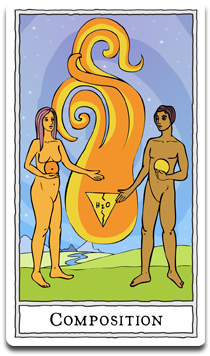 Composition is the conclusion that just because an element of something has a certain property, that the larger thing must also have that same property. Composition is the converse of Division.
Composition is the conclusion that just because an element of something has a certain property, that the larger thing must also have that same property. Composition is the converse of Division.
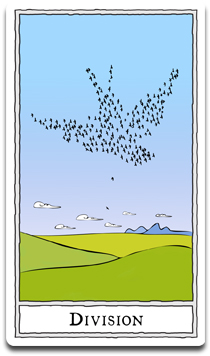 Division is the conclusion that just because something has a certain property, that all its parts must also have that same property. Division is the converse of Composition.
Division is the conclusion that just because something has a certain property, that all its parts must also have that same property. Division is the converse of Composition.
 Ad Hominem is a personal attack on an opponent rather than an attack on their argument.
Ad Hominem is a personal attack on an opponent rather than an attack on their argument.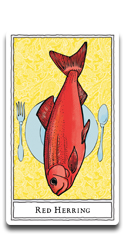
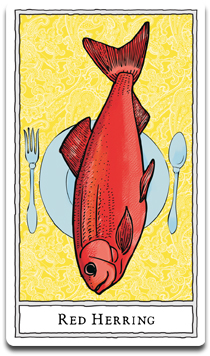 A Red Herring is a distraction used to avoid or derail an argument, often designed to appear logical. It is also the term for a misleading direction in a story.
A Red Herring is a distraction used to avoid or derail an argument, often designed to appear logical. It is also the term for a misleading direction in a story.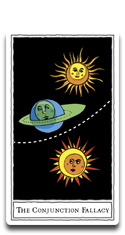
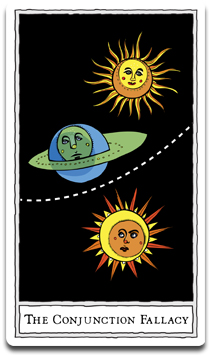 Which is more probable?
Which is more probable?
 The Hot Hand Fallacy is the assumption that wins or losses in games of chance exist in streaks.
The Hot Hand Fallacy is the assumption that wins or losses in games of chance exist in streaks.
 The Masked Man Fallacy is when an
The Masked Man Fallacy is when an